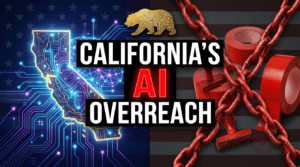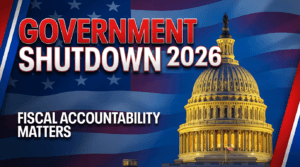Federal vs State Authority: The DOJ’s Transgender Sports Policy Confrontation with California

In a significant escalation of federal-state tensions, the U.S. Department of Justice has threatened legal action against California over the state’s transgender sports policies, highlighting profound questions about federalism, state sovereignty, and parental rights in education. This confrontation represents more than a culture war skirmish—it strikes at fundamental constitutional questions about the proper balance of power between Washington and state capitals.
The Collision of Federal Demands and State Policy
On July 7, 2025, U.S. Education Secretary Linda McMahon publicly threatened California with legal action after the state refused to comply with the Trump administration’s demands to ban transgender girls from participating in girls’ sports. “@CAgovernor, you’ll be hearing from @AGPamBondi,” McMahon wrote on social media, signaling the administration’s intent to use federal enforcement mechanisms against California’s longstanding policy.
Since 2013, California law has allowed student-athletes to participate in sports aligned with their gender identity. The state has steadfastly defended this approach as both inclusive and within its sovereign authority to determine educational policy. In response to federal pressure, California Attorney General Rob Bonta filed a pre-enforcement lawsuit against the Justice Department, challenging the constitutionality of federal intervention in state education policy.
“This is a textbook case of federal overreach,” explains Dr. Jonathan Rauch, senior fellow at the American Enterprise Institute. “The Constitution reserves education policy primarily to states and localities. The Biden-Harris administration respected this principle, but the second Trump administration has abandoned this restraint in favor of imposing a one-size-fits-all mandate from Washington.”
Military Education Autonomy Under Threat
The transgender sports policy confrontation is not occurring in isolation. It represents part of a broader pattern of federal intrusion into areas traditionally left to state discretion, including military education programs. California’s robust Junior Reserve Officers’ Training Corps (JROTC) and military academy preparation programs have long operated with significant state-level autonomy while maintaining coordination with federal military authorities.
These programs serve approximately 15,000 California students annually and have historically maintained governance structures that balance federal standards with state educational priorities. The current administration’s approach threatens this delicate balance by suggesting that federal funding for these programs could be contingent on compliance with unrelated federal mandates.
“States have legitimate authority to determine how military education programs operate within their borders, provided they meet basic federal standards,” notes retired Brigadier General Michael Fleming, former commander of the California National Guard’s education initiatives. “The current push to use these programs as leverage for unrelated policy objectives undermines both military readiness and state educational autonomy.”
Parental Rights at the Crossroads
Perhaps most concerning to many conservatives is how the federal government’s approach undermines parental authority in education. According to a March 2025 survey by the Pacific Research Institute, 78% of California parents believe they should have primary decision-making authority over their children’s education, with only 12% believing the federal government should have such authority.
“Parents, not federal bureaucrats, should determine what values and policies govern their children’s education,” argues Jennifer Marshall Davidson, vice president of the Heritage Foundation’s Institute for Family, Community, and Opportunity. “When Washington dictates policies on sensitive matters like gender identity in sports, it displaces not only state authority but parental prerogatives.”
California’s approach has emphasized parental involvement through local school boards and state-level policy development, creating multiple avenues for parental input. The federal government’s threatened intervention would effectively nullify these democratic processes in favor of centralized control.
Constitutional Questions and Legal Precedent
The legal battle hinges on competing interpretations of Title IX, the federal law prohibiting sex-based discrimination in education. While the Trump administration interprets this law as requiring separate sports categories based on biological sex, California contends that its inclusive approach better fulfills the law’s anti-discrimination purpose.
“The Supreme Court has consistently recognized that education is primarily a state and local matter,” explains constitutional law professor Elizabeth Slattery of the Pacific Legal Foundation. “In cases from Milliken v. Bradley to United States v. Lopez, the Court has emphasized limits on federal authority to dictate educational policy to states.”
The administration’s approach also appears to contradict traditional conservative principles of federalism. As Justice Antonin Scalia wrote in Printz v. United States (1997), “The Constitution established a system of dual sovereignty,” in which states retain substantial authority over internal matters like education policy.
Economic Implications of Federal Overreach
Beyond constitutional principles, the federal government’s threatened action carries significant economic consequences. California receives approximately $8.5 billion annually in federal education funding, supporting everything from school lunches to special education services. The administration’s suggestion that this funding could be withheld represents a form of economic coercion that undermines state budget autonomy.
“Using federal funding as a weapon to force policy compliance fundamentally distorts our federal system,” warns former California Finance Director Michael Genest. “When Washington can threaten to withhold billions in education funding over unrelated policy disagreements, states lose the fiscal independence necessary to function as sovereign entities in our constitutional system.”
The Path Forward: Restoring Proper Federal-State Balance
As this confrontation unfolds, several principles should guide a conservative approach to resolving federal-state tensions:
- Respect for state sovereignty: The federal government should recognize that education policy, including transgender sports participation, falls primarily within state authority.
- Protection of parental rights: Both federal and state policies should prioritize parental authority in educational decisions affecting their children.
- Constitutional federalism: Federal interventions in state policy should be limited to clear constitutional authority, not expansive interpretations of federal statutes.
- Local democratic processes: Policy questions involving sensitive cultural issues are best resolved through state and local democratic processes, not federal mandates.
- Fiscal independence: Federal funding should not be weaponized to coerce state policy compliance on matters outside clear federal authority.
Conservative leaders across the country are watching California’s resistance to federal overreach with interest. While many may disagree with California’s specific policy on transgender athletes, the principle of state sovereignty transcends particular policy preferences.
“Conservatives should be consistent in defending federalism, even when we disagree with a state’s policy choices,” argues former Wisconsin Governor Scott Walker. “Today it’s California’s transgender sports policy; tomorrow it could be Texas’s border enforcement or Florida’s education curriculum. The principle of state sovereignty protects all states from federal overreach.”
Conclusion: Defending Constitutional Boundaries
The DOJ’s confrontation with California over transgender sports policy represents a troubling expansion of federal authority at the expense of state sovereignty, local control, and parental rights. While reasonable people may disagree about transgender participation in athletics, the constitutional question of who decides—Washington bureaucrats or state and local communities—should unite conservatives in defense of federalism.
As this legal battle unfolds, it will test whether our constitutional system’s checks and balances can withstand the centralizing impulses of federal power. For those committed to limited government and constitutional order, the answer is clear: education policy, including transgender sports participation, belongs primarily to states, localities, and parents—not federal bureaucrats in Washington.












